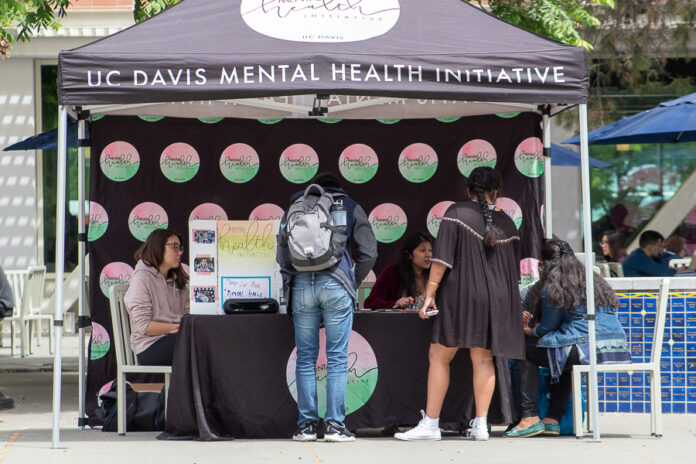Several student groups come together to promote wellness
Throughout May, many mental health advocacy groups stood in solidarity to support Mental Health Awareness Month (MHAM). These groups aim to reduce the stigma surrounding mental health by encouraging students to join the conversation and be more receptive towards recognizing the importance of taking care of themselves.
The different themed events, such as “Mental Health and College,” which focused on raising awareness about the stresses that accompany college, emphasize what can cause mental health issues and how to find the correct treatment for the particular situation. Fun activities, like “Adopt a Pet Rock,” provided a low-stress environment for students to decorate their own rocks with various messages of positivity and support alongside friends, while also highlighting the numerous ways students can keep their mental health strong and what options are available in times of stress.
One of the groups affiliated with MHAM, Each Aggie Matters, is responsible for placing green ribbons decorated with myths and facts about mental health on the trees surrounding the Memorial Union.
As part of Each Aggie Matters, the executive board of the Student Mental Health Coalition (SMHC), led by fourth-year neurobiology, physiology and behavior major co-chair Shradha Shah, aims to unite some of the advocacy groups on campus with the mutual goal of bringing mental health issues to light. Shah is in full support of “advising campus leadership, reducing stigma[s] and informing students to allow for greater collaboration and resource transparency,” echoing the larger mission the coalition hopes to achieve.
The road doesn’t stop at increasing the resources available. Shah and her members also take on the task of “representing student mental health interests to all agencies, such as the Student Health and Counseling Services,” which means keeping in close contact with the support outlets available to students to ensure the best service possible is given to those in need.
Ty Miles, a fifth-year linguistics major and president of the National Alliance on Mental Illness (NAMI), spoke about the resources his organization provides to students and the help he and his members make available.
“We offer free mental health first aid training twice a quarter that teaches students how to recognize mental health conditions and the appropriate ways to respond until professional help can be sought,” Miles said. “It also helps students develop the care and compassion necessary in these situations.”
Miles also highlighted various presentations open to students that showcase the reality of living with mental health conditions.
“We recently had a student guest presenter at a meeting talk about her experience with Obsessive Compulsive Disorder,” Miles said. “This gives students a chance to see what some mental health conditions look like and to learn more about how to address these conditions with others.”
As someone who has struggled with mental health issues in the past, Miles understands how the rigors of college can weigh on students, especially those who feel like UC Davis demands higher expectations than they are capable of handling.
“I think one of the largest factors of mental health issues in students here at Davis is that, because they are in a research university with a good reputation, they feel so much pressure,” Miles said. “Students want to succeed and sometimes overachieve. Many studies show that people ages 17 to 24 are most likely to experience mental health issues, which falls right in line with college students.”
With the help of organizations like NAMI, SMHC and many more, students struggling with mental health, or who may know of someone in need of help, have multiple resources providing aid. Breaking the stigma starts with students looking out for one another and extending a helping hand wherever possible.
Written by: VINCENT SANCHEZ – features@theaggie.org





